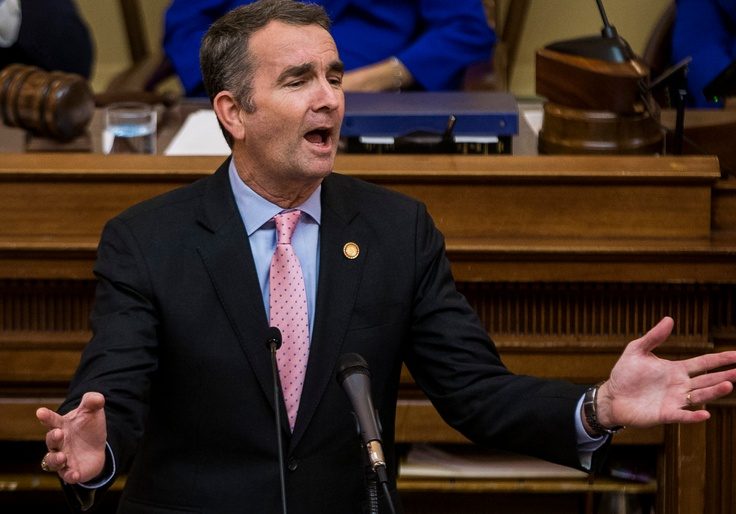Virginia governor Ralph Northam (D.) is poised to sign legislation granting parole eligibility to prisoners who received life sentences as minors, a group which includes D.C. beltway sniper Lee Boyd Malvo.
House Bill 35, which passed the state senate Monday and is now headed for Northam's desk, would make individuals who were sentenced to life in prison as minors eligible for parole. The bill would affect over 700 people currently serving time in Virginia's state prison, Daniel Horowitz of the Conservative Review reported.
The bill passed the state House of Delegates on a near party-line vote, with just one Republican supporting it. Seven Republicans joined the Senate's 20 Democrats to pass it in the upper chamber.
Among juvenile lifers in Virginia is Malvo. In 2002, at the age of 17, he served as an accomplice to John Allen Muhammad in a series of deadly sniper attacks that terrorized residents of Maryland, Virginia, and Washington, D.C., leaving 10 dead. Muhammad was executed by the state of Virginia in 2009; Malvo is currently serving four life sentences.
Although the bill would implicate offenders like Malvo, it would not actually end his incarceration, as he is also subject to six life sentences in Maryland. He is also suspected in outstanding cases in Alabama, Arizona, Louisiana, and Washington state.
Malvo is currently challenging his Virginia sentences before the Supreme Court, arguing that they should be struck down under 2012's Miller v. Alabama, in which the Court found that mandatory life-without-parole sentences for minors violate the Eighth Amendment's prohibition on cruel and unusual punishment.
The abolition of juvenile life without parole (JLWOP) is a major priority of criminal justice reform groups like the American Civil Liberties Union and the Sentencing Project. Following several Supreme Court rulings constraining its use, an offender can only be sentenced to JLWOP if he has committed a homicide and is deemed "permanently incorrigible and incapable of rehabilitation." A bare majority of the Court found the execution of individuals under age 18 unconstitutional in 2004's Roper v. Simmons, a ruling that then-justice Sandra Day O'Connor said was not justified by "the objective evidence of contemporary societal values, nor the Court's moral proportionality analysis, nor the two in tandem."
Horowitz noted that 8 percent of homicide offenders and 16 percent of rape offenders were juveniles, as of 2018.
Northam's decision is part of an emerging trend of state executives granting blanket paroles that sweep up conspicuously heinous offenders. As the Washington Free Beacon reported in January, Pennsylvania lieutenant governor John Fetterman is working to commute the life sentences of more than 1,500 second- and third-degree murderers, arguing that "if you didn't take a life, the state shouldn't take your life through unending incarceration." Among those on Fetterman's pardon list is the co-conspirator in the torture and murder of 13-year-old Richezza Williams, who was "tortured with household items, including a heated clothes hanger, cleaning chemicals, and a turkey baster."
